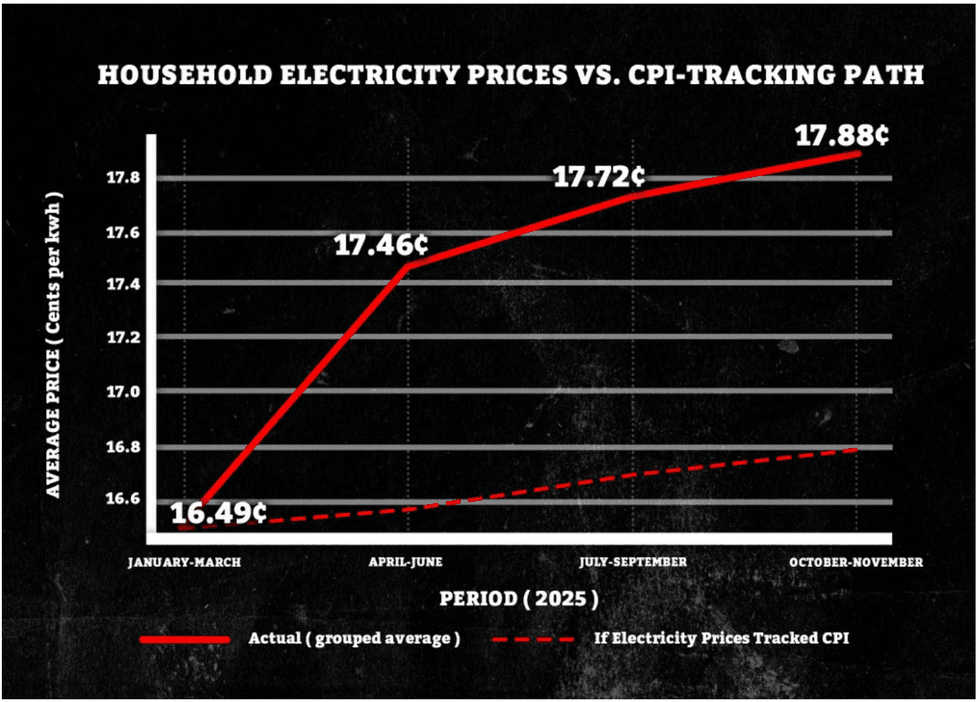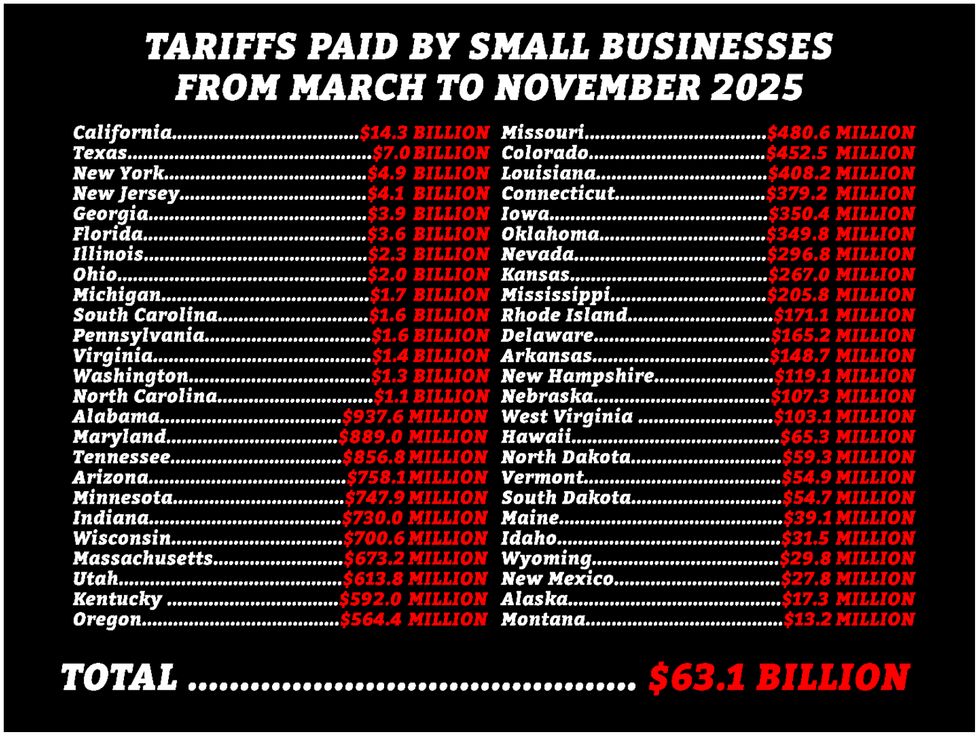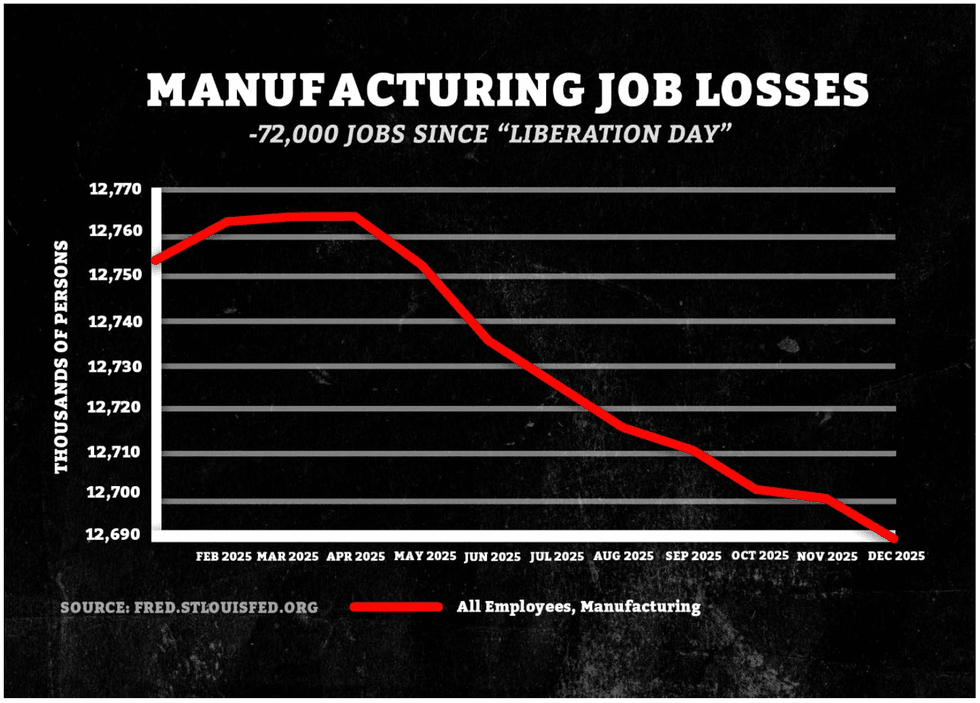

SUBSCRIBE TO OUR FREE NEWSLETTER
Daily news & progressive opinion—funded by the people, not the corporations—delivered straight to your inbox.
5
#000000
#FFFFFF
To donate by check, phone, or other method, see our More Ways to Give page.


Daily news & progressive opinion—funded by the people, not the corporations—delivered straight to your inbox.

Judge Aleta A. Trauger issued an opinion granting a preliminary injunction in Tennessee N.A.A.C.P v. Hargett, enjoining a new Tennessee law that threatens criminal and civil penalties on civic engagement organizations that conduct voter registration drives, both informal and formal, at local community events. The law places a range of restrictions--including requiring plaintiff organizations to preregister with the state prior to each voter registration drive in which they attempt to collect more than one-hundred registration applications, swearing an oath that their officers intend to follow the law, requiring that volunteers conduct state-mandated training, and imposing a 10-day return deadline after forms are collected--or face criminal penalty.
"There was no justification for the comprehensive burdens placed on groups and organizations that are focused on addressing staggeringly low registration rates across Tennessee," said Kristen Clarke, president and executive director of the Lawyers' Committee for Civil Rights Under Law. "The Court's decision is important and will have immediate impact because it relieves unnecessary burdens imposed on organizations that have been actively working to register people to vote in low-income communities across the state."
Clarke continued: "It is also important to note that the voter registration process involves more than completing forms; it also involves interactive engagement with the public to help underscore the importance of participating in the political process. The law implicated the First Amendment rights of free speech and free association. The Court's decision makes clear that the state's law runs contrary to the core principles underlying the First Amendment."
Tennessee's law also imposes fines of up to $10,000 where organizations submitted a certain number of "incomplete" forms, and it places additional criminal penalties on organizations that do not include a mandatory disclosure on public communications regarding voter registration applications. In granting plaintiffs' motion for a preliminary injunction, Judge Trauger ruled that these provisions were vague, placed onerous burdens on plaintiff organizations, and chilled their ability to engage in core protected First Amendment speech and associational activity. Judge Trauger stated, [i]f Tennessee is concerned that voter registration drives are being done incompetently, it can engage in public education efforts without relying on a complex and punitive regulatory scheme. If it is concerned that the drives are being done fraudulently--for example, by a person or organization collecting forms and never turning them in--it can punish the fraud rather than subjecting everyone else to an intrusive prophylactic scheme that true bad actors would likely evade regardless."
"We are ecstatic that the Court ruled in our favor and stopped the law in its tracks. This means that volunteers can move forward and feel free to continue registering people to vote without fear of huge fines or being charged with a crime. Thanks to the Judge's decision, we will be free to help others become a part of the democratic process through registration and voting," said Gloria Sweet-Love, president of the Tennessee N.A.A.C.P.
"The Judge's decision is a victory for voting rights. The state law is draconian and punitive, seemingly intended to harm black voters and all voters in general. Voter participation is fundamental to democracy and civic participation. The judge's decision is a victory for voting rights," said Sekou Franklin, co-coordinator of Democracy Nashville-Democratic Communities.
"We are overjoyed by the court's decision to block the State's oppressive voter registration law. Registering voters is a noble act and should be conducted without fear of intimidation or retaliation from our government. We applaud the judge's ruling and look forward to getting back to the necessary work of registering Black voters and advocating for their voting rights," said Charlane Oliver, president of The Equity Alliance.
David Goodman, president of The Andrew Goodman Foundation, said, "We commend U.S. District Court Judge Aleta A. Trauger on the just decision to halt the implementation of this deceptive and unconstitutional law. It is a blatant attempt to use the law to threaten, intimidate, and bully organizations that are engaged in registering voters with the ultimate goal of suppressing the votes of students and communities of color. My brother, Andrew Goodman, died defending voting rights, and this legislation is an affront to his legacy. A healthy democracy requires the participation of all of its citizens, especially those in our younger generation. We hope this decision emboldens more young people to get registered, vote, and be heard."
"It is very gratifying that the Court has granted a preliminary injunction to prevent Tennessee's new voter registration law from going into effect as scheduled on October 1. This will allow our clients to resume their important work helping to register disenfranchised Tennessee voters, and ensure that as many Tennessee citizens as possible are able to vote in next year's important elections," said Ira M. Feinberg, Partner at Hogan Lovells US LLP.
The lawsuit was filed by The Lawyers' Committee for Civil Rights Under Law, pro bono firm Hogan Lovells US LLP, Memphis-based firm Burch, Porter, & Johnson PLLC, Bromberg Law LLC, and community practitioner Daniel Ayoade Yoon on behalf of plaintiffs--Tennessee State Conference of the NAACP, Democracy Nashville-Democratic Communities, The Equity Alliance, and The Andrew Goodman Foundation, all of whom engage in voter registration activities--minutes after Governor Lee signed it into law.
The Court's opinion can be read here.
The Lawyers' Committee is a nonpartisan, nonprofit organization, formed in 1963 at the request of President John F. Kennedy to enlist the private bar's leadership and resources in combating racial discrimination and the resulting inequality of opportunity - work that continues to be vital today.
(202) 662-8600"Your Department of Justice initially released this list of 32 survivors' names, with only one name redacted," Rep. Pramila Jayapal told Attorney General Pam Bondi.
US Attorney General Pam Bondi on Wednesday refused to apologize to victims of late sex offender Jeffrey Epstein during a contentious hearing before the House Judiciary Committee.
During the hearing, Rep. Pramila Jayapal (D-Wash.) grilled Bondi on why her office failed repeatedly to comply with a law passed in 2025 requiring the US Department of Justice (DOJ) to release "all unclassified records, documents, communications, and investigative materials in DOJ’s possession that relate to the investigation and prosecution of Jeffrey Epstein."
In particular, Jayapal noted that some of the files released by the DOJ so far have kept victims' names intact, even while redacting the names of several powerful men who are implicated in Epstein's sex trafficking operation.
"Your Department of Justice initially released this list of 32 survivors' names, with only one name redacted," said Jayapal, who then slammed the DOJ for releasing files that not only included victims' names but also their email and residential addresses, and even nude photographs of them.
🚨HISTORIC. Rep. Jayapal asks Epstein survivors to raise their hand if they still haven't been invited to meet with Pam Bondi or the DOJ.
Every single one raises their hand.
Sometimes gestures are more powerful than words. Damn this Administration.
pic.twitter.com/jyYG7Mj6tN
— CALL TO ACTIVISM (@CalltoActivism) February 11, 2026
"Survivors are now telling us that their families are finding out for the first time that they were trafficked by Epstein," Jayapal continued. "In their words, 'This release does not provide closure, it feels like a deliberate attempt to intimidate survivors, punish those who came forward, and reinforce the same culture of secrecy that allowed Epstein's crimes to continue for decades.'"
Jayapal then invited the Epstein survivors who were in attendance at the hearing to stand if they so wished, and asked them to raise their hands if they had still yet to meet with the DOJ to discuss the case.
After several women stood and raised their hands, Jayapal asked Bondi if she would apologize to them failing to redact their names and personal information before releasing the Epstein files.
Bondi responded by trying to deflect blame for past failures onto former Attorney General Merrick Garland. Jayapal interrupted the attorney general and asked her if she would apologize to the survivors for disclosing their information.
Bondi again tried to redirect the conversation to Garland, after which Jayapal again objected.
Finally, Bondi responded, "I'm not going to get in the gutter for [Jayapal's] theatrics."
A report released Wednesday by a key Democratic senator details how President Donald Trump's "economic policies are making life unaffordable for millions of American small businesses, their workers, and their customers."
Since Trump returned to power last year, "America's 36 million small businesses and their workers have faced increased costs for everything from healthcare to electricity, groceries, childcare, housing, and other everyday necessities," notes Pain Street, the new report from Sen. Ed Markey (D-Mass.), ranking member of the Senate Committee on Small Business and Entrepreneurship.
The report highlights Republicans' so-called One Big Beautiful Bill Act (OBBBA), which slashed various benefits for US families, and their refusal to extend Affordable Care Act (ACA) subsidies that helped over 20 million Americans afford health insurance.
The OBBBA's $1 trillion Medicaid cut "is devastating for small businesses," the document declares, noting that 630,000 owners and more than 7.5 million workers at such companies rely on the federal program for healthcare coverage. Additionally, over 10 million owners and employees relied on the ACA tax credits that expired at the end of last year.
The publication also points to the president's attacks on clean energy and support for the planet-wrecking fossil fuel industry that helped him secure a second term. It says that "household electric bills have increased by 11.5%, and commercial electric bills have increased by 9%," stressing that such costs have climbed "more than three times faster than the overall rate of inflation."

The report also spotlights the "whiplash and cost of Trump's reckless tariffs," emphasizing that while the president often claims foreign countries are paying for his import taxes, "analysis by the Kiel Institute for the World Economy found that 96% of Trump's tariffs are being paid by American importers and consumers."
Specifically, since last March, US small businesses have shelled out more than $63.1 billion because of Trump tariffs. California—the world's fifth-largest economy—leads the state-by-state breakdown, at $14.3 billion, followed by Texas ($7 billion), New York ($4.9 billion), New Jersey ($4.1 billion), Georgia ($3.9 billion), Florida ($3.6 billion), Illinois ($2.3 billion), Ohio ($2 billion), Michigan ($1.7 billion), and South Carolina ($1.6 billion).

The president also claims that his tariffs are spurring a "manufacturing renaissance," but "approximately 98% of manufacturers in the United States employ fewer than 500 workers, with 75% of manufacturers employing fewer than 20," the report states. "US manufacturing shrank for the 10th consecutive month in December, and US factories have shed 72,000 jobs since Trump's 'liberation day' in April."
Adding to the evidence of Trump's negative impact, the Bureau of Labor Statistics announced Wednesday that across all sectors, US employers added just 181,000 jobs last year, far below its initial estimate of 584,000, and the country's economy has more than a million fewer jobs than previously reported.

Markey's staff further found that "soaring rents have left a record 22.6 million renters—approximately 50% of all renters in the US—struggling to afford their rent," 70% of families said last year that raising children is too expensive, and Trump's deportation agenda is estimated to reduce the number of immigrant and US-born workers by more than 5 million.
"Small businesses don't have Mar-a-Lago memberships, golden gifts, or ballroom invitations granting them special exemptions from Trump’s reckless economic policies, including his tariff taxes," Markey said in a statement announcing the report.
"Since Inauguration Day, Trump has made life more expensive for Americans—driving up costs on everything from healthcare, electricity, and groceries to childcare and housing—all while giving tax cuts to CEO billionaires and currying favors with big business," he continued. "As Trump's affordability crisis wreaks havoc on Main Street, we must fight back to protect small businesses, working families, and communities in Massachusetts and across the country."
As part of that fight, Markey has tried to pass multiple pieces of legislation that would exempt small businesses from Trump's tariffs, but both chambers of Congress remain narrowly controlled by the president's Republican Party.
"The American people want real change," the senator said. "Let's do it."
Recent progressive electoral victories have been followed by assurances from centrist Democratic politicians and strategists that such successes can't be replicated elsewhere, and congressional candidate Analilia Mejía's primary win this week was no exception—but Sen. Bernie Sanders implored voters not to listen to the naysayers who continue to insist that "moderation" is the key to winning elections for Democrats.
Emphasizing that Mejía, a grassroots organizer, was known to just 5% of voters in New Jersey's 11th Congressional District when she launched her campaign in November, Sanders said Wednesday: "Make no mistake. This can be done everywhere."
Mejía ran against 10 other candidates, including former US Rep. Tom Malinowski (D-NJ), in the Democratic primary ahead of the April 16 special election to fill the seat left vacant by Gov. Mikie Sherrill.
The progressive candidate was outspent 4-1, said Sanders, but proved unstoppable "because she had the courage to stand up for the working class in her area and throughout this country."
Mejía is a vocal supporter of shifting from the for-profit health insurance system to Medicare for All and has called for other progressive policies including tuition-free community college, a moratorium on new artificial intelligence data centers, and a federal law guaranteeing paid sick leave.
She has also called to abolish US Immigration and Customs Enforcement, the 23-year-old agency that President Donald Trump has deployed to cities across the US to carry out his violent mass deportation agenda, demanded an end to ICE's mass surveillance, and held training sessions for voters on anti-authoritarianism, civil disobedience, and how to prepare for encounters with federal immigration agents.
After Malinowski conceded to Mejía, Democratic strategist Steve Schale, who led former President Barack Obama's campaign operations in Florida in 2008, attempted to throw cold water on the progressive victory.
“The loudest voices are on the progressive left, but I don’t know if that’s where the party is,” Schale told The Hill Wednesday, asserting that Democratic voters in “southern states with large Black populations... don’t sound like progressives in New York and Northern New Jersey."
After New York Mayor Zohran Mamdani's victory in the Democratic primary last June against former Gov. Andrew Cuomo, former Transportation Secretary Pete Buttigieg—who has been named as a possible contender in the 2028 presidential race—was similarly dismissive, even though Mamdani, like Mejía, went from being barely known among voters to beating his establishment rival in just a few short months after focusing relentlessly on affordability and working-class issues.
Other progressive victories victories could be on the horizon in Maine, where Democratic Senate candidate Graham Platner has had a double-digit lead over Gov. Janet Mills in polls ahead of the June primary and raised three times as much as Mills and Sen. Susan Collins (R-Maine) combined in small donations in the final quarter of 2025; and North Carolina, where Durham County Commissioner Nida Allam is challenging Rep. Valerie Foushee for a second time after losing a close race in 2022.
Allam raised more than twice as much money as Foushee in the last quarter, according to numbers released last week.
Like Sanders, the New Jersey Working Families Party expressed optimism about Mejía's victory, with Antoinette Miles, the party's state director, saying Tuesday that "she has sent a clear signal that it’s a new day in New Jersey politics, and that our country is ready for bold, working-class leadership."
"In just 10 weeks, through the dead of winter, Analilia built a grassroots campaign for and by all New Jerseyans. Her bold message of an economy that works for all of us and an end to ICE’s brutality resonated with voters who are fed up with the status quo," said Miles. "Together, we’ve proved that organized people can defeat organized money."
Sanders added that "what Analilia did in New Jersey can in fact be done in every part of this country."
"The American people want real change," he said. "Let's do it."